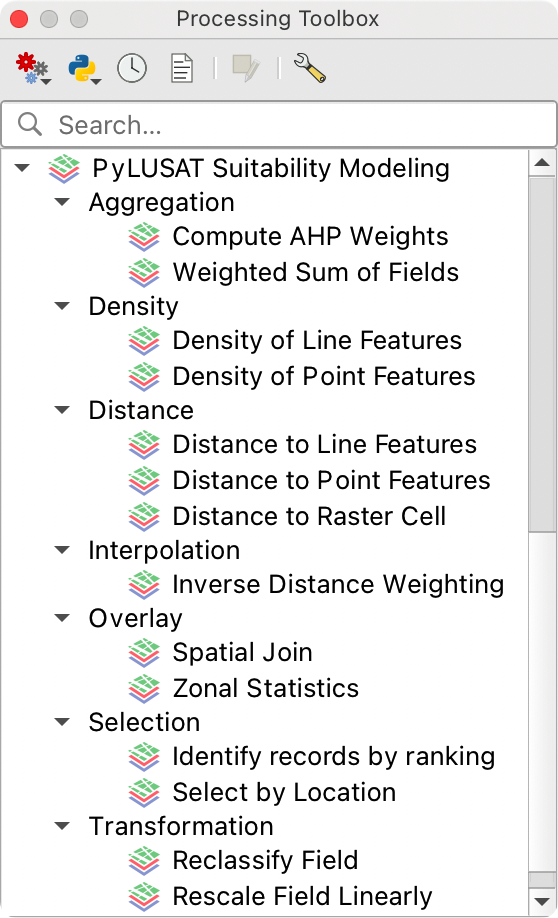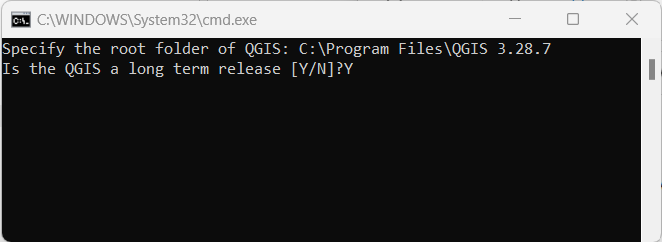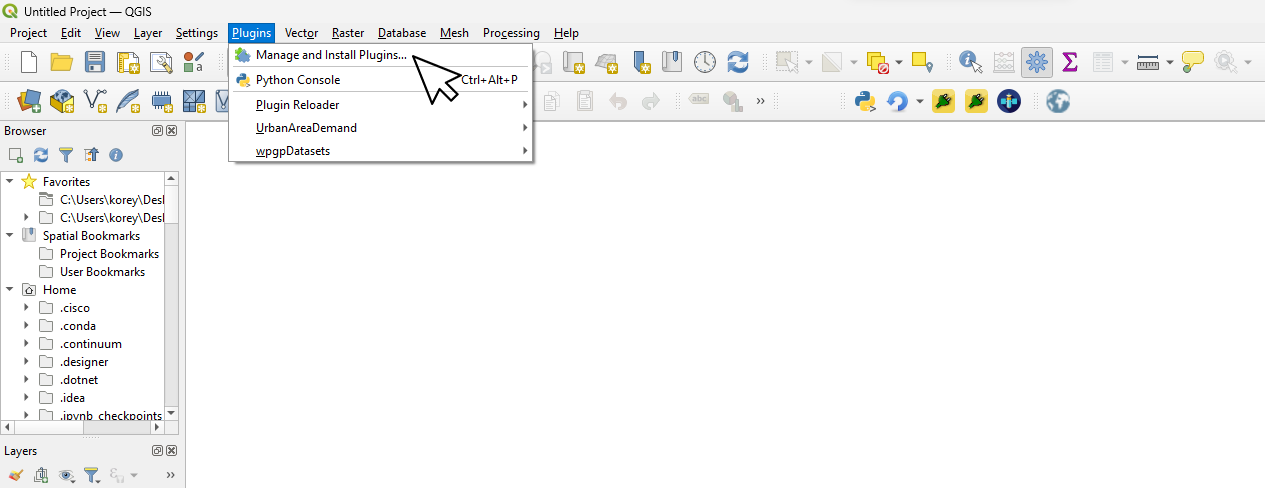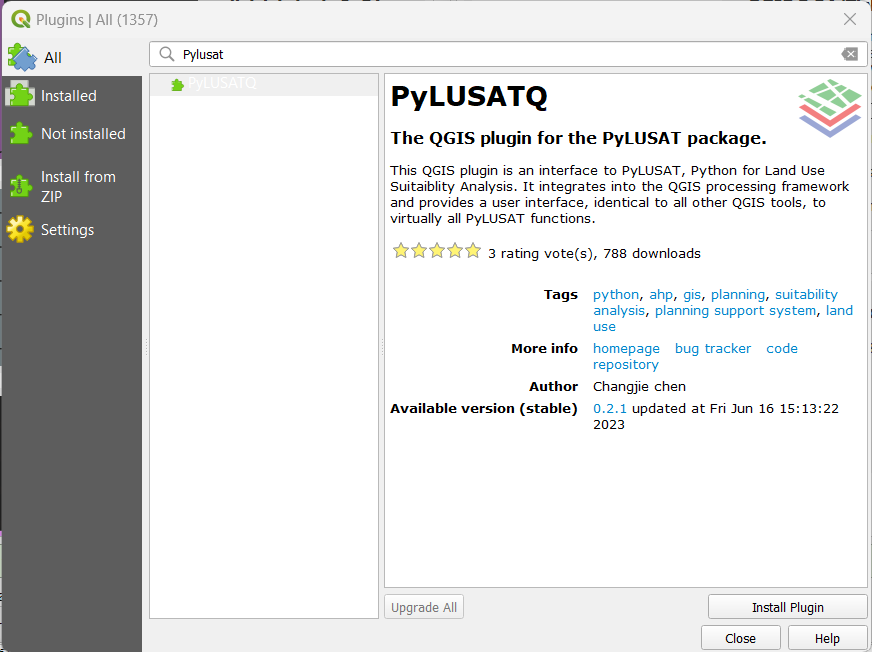PyLUSAT for QGIS#
The Python for Land-use Suitability Analysis Tools (PyLUSAT) is an open-source Python package dedicated for GIS-based land-use suitability modeling. This QGIS plugin provides interfaces to all functions in PyLUSAT to allow easy access and better integration into the QGIS processing framework.

For more information of PyLUSAT toolkit: https://github.com/chjch/pylusat or https://pypi.org/project/pylusat/
Requirements#
Windows (Windows 7, Windows 10 recommended) or macOS.
QGIS version 3.16 or higher (recommended).
Installation#
1. Set up PyLUSAT#
In Windows:
We suggest two ways to set up your computer for PyLUSAT.
For beginners:
a. Visit PyLUSAT GitHub repository Click Code, and then Download ZIP to download the pylusat-qgis repository.
b. Copypylusat_installer.bat, paste it under QGIS folder in your system. This file will install the prerequisite packages needed to use PyLUSATQ.
c. Right Click the copied pylusat_installer.bat to Run as administrator.
- OR, if you are familiar to work with terminals:
Visit PyLUSAT GitHub repository. Copy and paste the code in pylusat_installer.bat to your terminal under the QGIS folder and run it.
Note:
Thepylusat_installer.batfile helps you clean your environment and install proper pre-required packages. Noted that:
1. we usepipwininstead ofpiporcondaconsidering the compatibility of QGIS and the packages.
2. we applypipwin refreshto force a cache rebuild in case any potential conflicts.
For more information about the PyLUSAT plugin, please visit https://github.com/chjch/pylusat.
In the pop-up window:

- Specify your root folder of QGIS:The same where you place the installer. - For example C:\Program Files\QGIS 3.29.7
- Is the QGIS a long term release [Y/N]: Refer to the version you installed. Type Y for long term release. N for short term release. - The easiest way to identify this is by Opening QGIS and seeing if there is a banner on the splash screen labeling it as a long term release.
Press Enter key and wait for the installation to complete.
In macOS:
Use pip install pylusat in Python Command Prompt of QGIS.
2. Install PyLUSATQ plugin#

Go to Plugins -> Manage and Install Plugins.

In the Search bar, type PyLUSATQ (be sure to CHECK Show also experimental plugins in the Settings).
Click Install Experimental Plugin to install PyLUSATQ.
Wait for a Plugin Installed Successfully Pop-Up
Close the QGIS application and re-open it to force a refresh of the installed plugins
In the processing toolbar search for the PyLUSATQ icon and dropdown